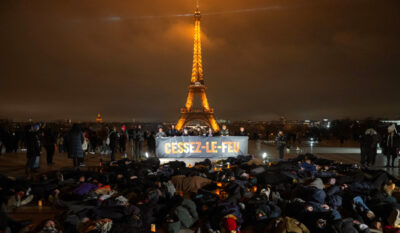October Quarterly Update 2021
Yemen
May and June saw further escalation in the Yemen conflict as the Houthis continued their efforts to gain control of the densely populated city of Marib, one of the last government-held territories. With backing from the Saudi-led coalition, the Government of Yemen managed to retain power over the city, but the uptick in violence increased risk to civilian lives and brought the peace process to a grinding halt as warring parties insisted on major concessions before agreeing to a ceasefire, resulting in gridlock.
Against this backdrop, in-depth consultations with Yemeni partners over the past 6 months has consistently highlighted the need for the political process to be inclusive of all the key constituents of Yemeni society especially women. However, civil society organisations, reeling from the effects of Covid-19, funding shortages, and little interest from the international community, have struggled to bring their agendas of accountability and justice to the forefront of the deliberations on Yemen.
Ending arms sales to Saudi Arabia: new decree issued in France following work by Crisis Action
In July, French Prime Minister Jean Castex issued a new decree of the Prime Minister on arms sales control, declaring that the Ministry of Defence, the Ministry of Foreign Affairs and the Ministry of Economy will undergo a periodic review by the Parliament regarding French arms sales. This followed work carried out by France-based partners, coordinated by Crisis Action, who have been campaigning for such oversight. Partners had met with Colonel Géraud Laborie, Deputy Military Advisor of the French Prime Minister and Ms. Christile Druhle, Deputy Diplomatic Advisor of the Prime Minister. Partners are committed to continue to build on this win to push for ever more scrutiny of French arms sales bound for Yemen.
Engendering the Yemeni peace process
Crisis Action partners, Peace Track Initiative and the Women International League for Peace and Freedom launched the Feminist Roadmap for Peace in Yemen; a guiding framework highlighting gender-responsive priorities and recommendations on the Yemen peace process culminating two years of consultations led by 9 women-led organisations, with 148 inter-sectional women and 38 men taking into consideration age, geographical and social representation, expertise, and war experience.
Concerned by the exclusion of women, women’s priorities and civil society from the peace process, Crisis Action:
- Organised a panel on accountability and reconciliation bringing together Yemeni civil society experts and the heads of the two leading UN bodies on accountability: the Group of Eminent Experts on Yemen (GEE) and the Panel of Experts on Yemen (POE).

- Prepared for a roundtable for Yemeni CSOs to align and articulate a common vision for what inclusion in the peace process look like, the findings of which will be shared with the new Special Envoy.
- Supported partners to launch the feminist roadmap which was also supported by the Dutch and Norway governments.
The way ahead
Crisis Action is developing a new Spoilers of Peace campaign for Yemen building on Crisis Action’s South Sudan campaign of the same name. This will be rolled out alongside ongoing work to support increased civil society engagement with the peace process including with the new UN Special Envoy.


